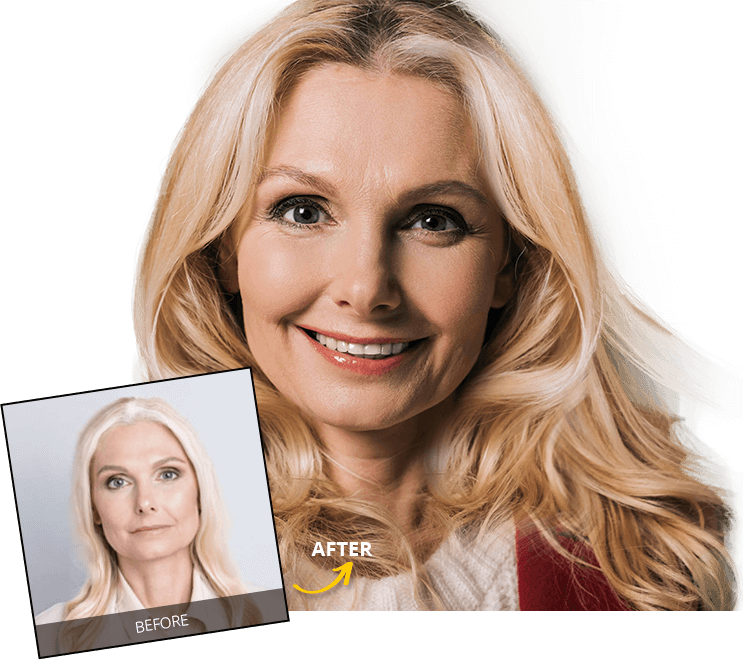10 Nutrients for Healthy Hair during Menopause
Protein
Keratin is a protein and is the building block of your hair, and although it is not directly found in food, its production directly depends on how much protein is contained in your diet. A protein deficiency in your diet can have a lasting impact on your hair health, especially during perimenopause and menopause. Keratin is made up of amino acids that your body gets from high-protein foods such as red meat, beans, fish, eggs, and milk, as well as vegetables such as cabbage and asparagus.
vitamin C
Vitamin C is a nutrient that is simply transferable and necessary to maintain healthy hair during menopause. Not only can it help promote healthy hair growth, but it can also encourage regrowth after hair loss. Vitamin C is a common name for ascorbic acid, especially L-ascorbic acid, and is an organic acid with small molecules. This means that when added to hair products such as shampoo, it can be effective in removing mineral buildup and thus improve your hair's ability to absorb moisture, thereby improving hair health. It is also effective in preventing hair damage, as it acts as an antioxidant that removes free radicals and protects against structural damage to proteins in the hair.
Healthy Hair during Menopause-Nutrients-Nutrition-Healthy-Hormonal Balance-Hormones
vitamin A
Another miracle vitamin, vitamin A, can increase the rate of cell regeneration and synthesis. Thus, a deficiency can directly affect the maintenance of healthy hair during menopause. This is the key to hydrating your hair and preventing it from becoming brittle.
Fats
There have been discussions for years about how much fat should be included in your diet, but it is generally agreed that you need healthy fats in your diet. If you don't, you run the risk of damaging your hair, because these healthy fats provide your body with linoleic acids, as well as long-chain, multisaturated fats that are essential for hair structure. If you're looking for good fats that you can include in your diet, fish can be a great source, as well as flaxseed and olive oil.
Healthy Hair during Menopause-Nutrients-Nutrition-Healthy-Hormonal Balance-Hormones
Niacin
Niacin is a little-known solution for hair pain and can be a great supplement in promoting healthy hair during menopause. Niacin, also known as vitamin B3 or nicotinic acid, is a water-soluble vitamin that helps the body convert food into energy, maintain the structure of blood cells, and improve blood circulation. It affects hair growth because it can improve blood circulation in the scalp, which in turn brings oxygen and other nutrients to your hair follicles.
Pantothenic acid
Pantothenic acid is also known as vitamin B5 and is very important for healthy hair during menopause. By strengthening the cells in the hair follicles, it helps you work properly, thereby promoting hair growth. Not only that, but increasing the amount of vitamin B5 in your diet can help with problems like dandruff or itchy skin. Good sources of pantothenic acid are egg yolks, fish, beef, brewer's yeast, liver, pork, sweet potatoes, and tomatoes.
Healthy Hair during Menopause-Nutrients-Nutrition-Healthy-Hormonal Balance-Hormones
Iron
Iron deficiency can often be the cause of hair loss, and therefore it is important to consume enough iron in your diet during menopause. It helps to ensure healthy hair because, like niacin, it promotes increased blood circulation to the scalp and therefore improves the maintenance of hair follicles.
Vitamin B12
Vitamin B12 is another nutrient that promotes healthy blood flow, as it helps in the production of red blood cells. Red blood cells are responsible for transporting oxygen to your tissues, including your hair follicles, and also play a role in maintaining your hair color. Foods that contain high levels of vitamin B12 include meat, fish, eggs, and dairy; this is why women who eat vegetarian or vegan foods should consider a vitamin B12 supplement to make sure they don't have a deficiency.
Folate
Folate is another B vitamin that plays an important role in maintaining healthy hair during menopause. It is naturally found in some foods, including green peas, white beans, eggs, cod, and liver, and can also be found in many supplements. Folate plays a crucial role in the growth of hair tissue, as it stimulates the repair of your follicular cells. Not only that, it also prevents gray hair and improves blood circulation, which, as we have already noted, plays a crucial role in hair health.
Zinc
Many experts believe that zinc deficiency can lead to the breakdown of protein structures in your hair follicle, which can lead to hair loss. It is also thought to play an important role in DNA production and may help regulate your hormones, which may be important if your hair loss is really caused by a hormonal imbalance. Zinc supplements can be a great way to make sure you're getting plenty of this particular nutrient, but foods like oysters, nuts, eggs, chickpeas, sweet potatoes, and spinach are also fully packaged and can be great for healthy hair during menopause.






0 Comments